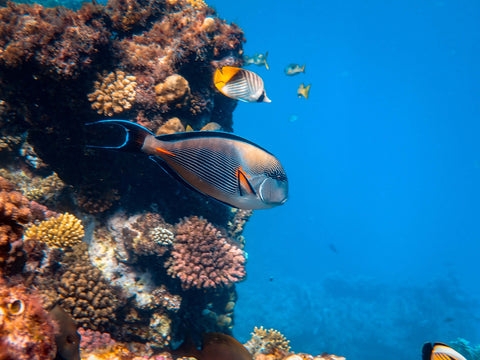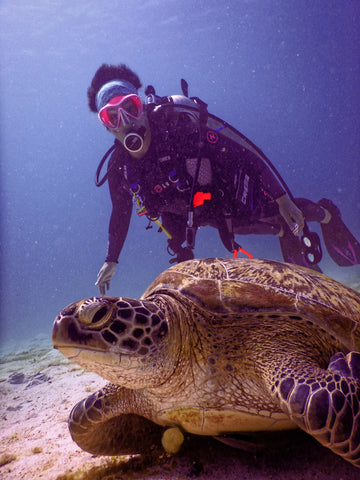Depending on your perspective, scuba diving is either the most exhilarating way to experience the ocean, or cruel and unusual punishment which sounds terrifying and awful.
In our experience, almost anyone can learn to scuba dive. For some people, it might touch on various phobias or traumas, and - we want to be very clear on this - we understand. It’s not for everyone. But for others, who just feel slightly daunted by the process, it can be a really liberating experience.
All of that gear which feels quite clunky on land becomes entirely natural under water.
You end up seeing an entirely new world which you can’t experience otherwise, not even in an aquarium. And knowing that you’ve overcome a fear?
There’s something very rewarding in that. Often, people take this accomplishment into other areas of their lives, and are generally better for it.
Even if they don’t, scuba diving is just awesome. Today, we will give you a step by step guide on how to go from someone who doesn’t like putting their head under the shower to an intrepid ocean explorer!
The best way to observe a fish is to become a fish
Step 1: Decide on a goal. Human beings are pretty good at giving up unless we have a target to hit. A good framework for goal setting is to make them SMART.
Specific - I want to dive on the Great Barrier Reef.
Measureable - I want to go at least five metres underwater.
Achievable - The Marianas Trench might be a bit beyond you at this point.
Relevant - It should probably be about scuba diving and not rubix cubes.
Time-based - I would like to do this before my 40th Birthday.
Step 2: Spend some time snorkelling in an environment in which you feel comfortable. It might be the bath at first. You might step up to a pool. Eventually, you might be comfortable snorkelling in the ocean on a calm day.
Step 3: Be over twelve years old. You can’t legally be certified any younger than this. However, you could follow some of the following steps in preparation if you are not yet of age.

Step 4: Be in ‘good physical health’. Admittedly, this is a little subjective, but a diving instructor will typically assess your overall fitness, heart health, how well you breath and whether or not you have any ear or sinus issues. After all, you don’t really want to run into a significant problem when you are ten metres underwater…
Step 5: Find a local provider who can give you certification. In Australia, you have three main choices:
- PADI (Professional Association of Diving Instructors)
- SSI (Scuba Schools International)
- NAUI (National Association of Underwater Instructors)’
A quick google search will find you the nearest instructor. You will need to complete a full course which consists of classroom lessons, training in a pool and (eventually) an open water dive. Each provider runs the course differently, and the lengths will vary.
Step 6: Pass the exam. Naturally, they want to make sure you can look after yourself before they give you accreditation. Generally, there is a written and a practical component, so you need to be pretty well rounded to make it though.
Step 7: Book a dive. It isn’t a great idea to go by yourself on your first dive. Do this over and over and over, until you are so confident, you could do it all in your sleep.
Step 8: Look at the goal you set in Step 1. Are you ready to realise that dream? If so, make it happen! Or are your skills still developing? Maybe repeat Step 7 some more times. Slow and steady wins the race after all…
Trust us, scuba diving is one of the most breathtaking (not literally) things you will ever experience. Whether you’re champing at the bit, or panic breathing into a paper bag, we would encourage you to persevere.
It will be worth it in the end…


